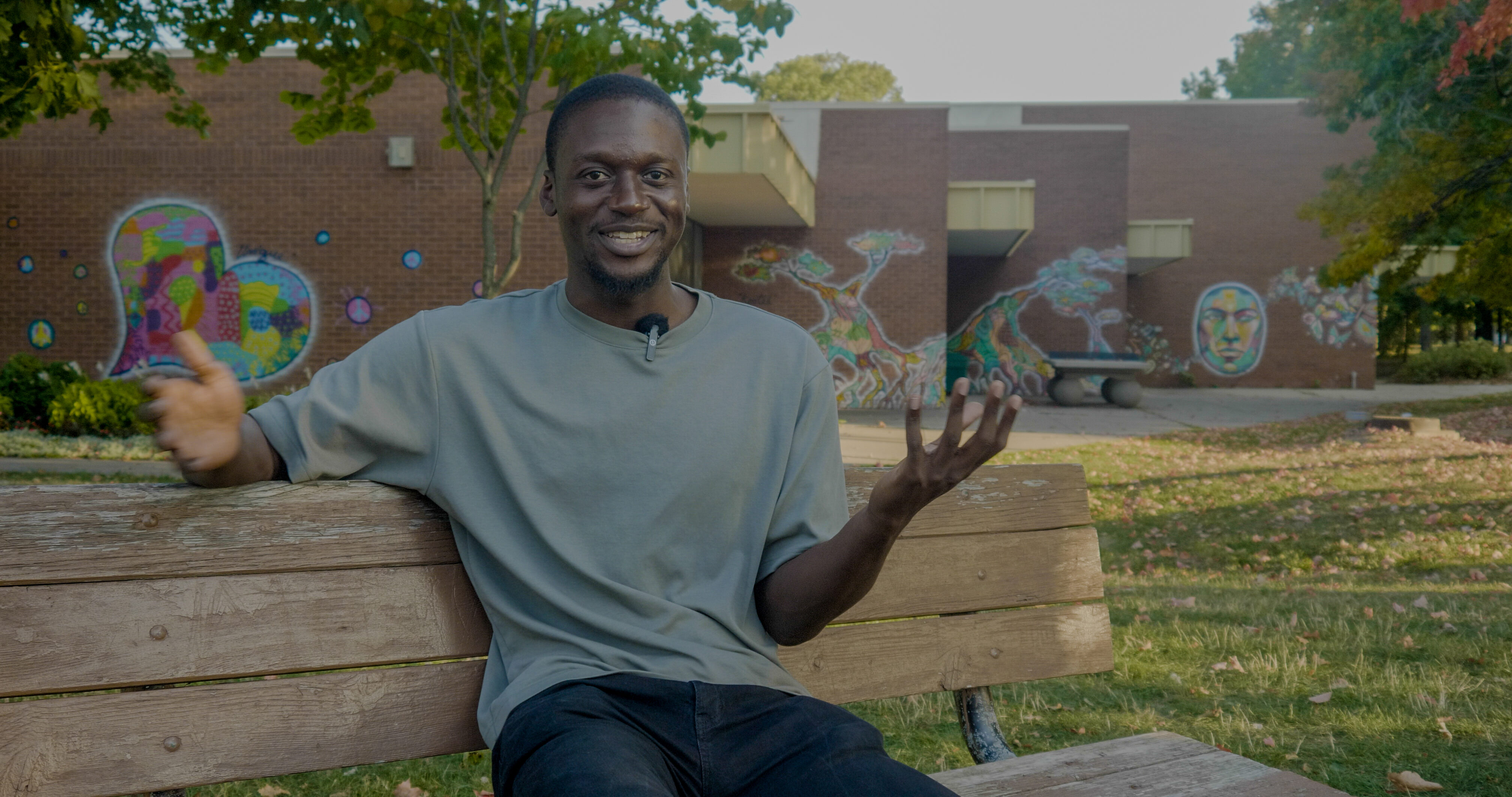THE GREEN LINE
ORIGINAL STORY
How West Bend’s pay-what-you-can grocery store is diverting food from landfills onto tables
The Green Line team visited Feed It Forward, a non-profit organization, to learn how its pay-what-you-can grocery store on Dundas Street West helps residents overcome food insecurity and tackle food waste in the city.
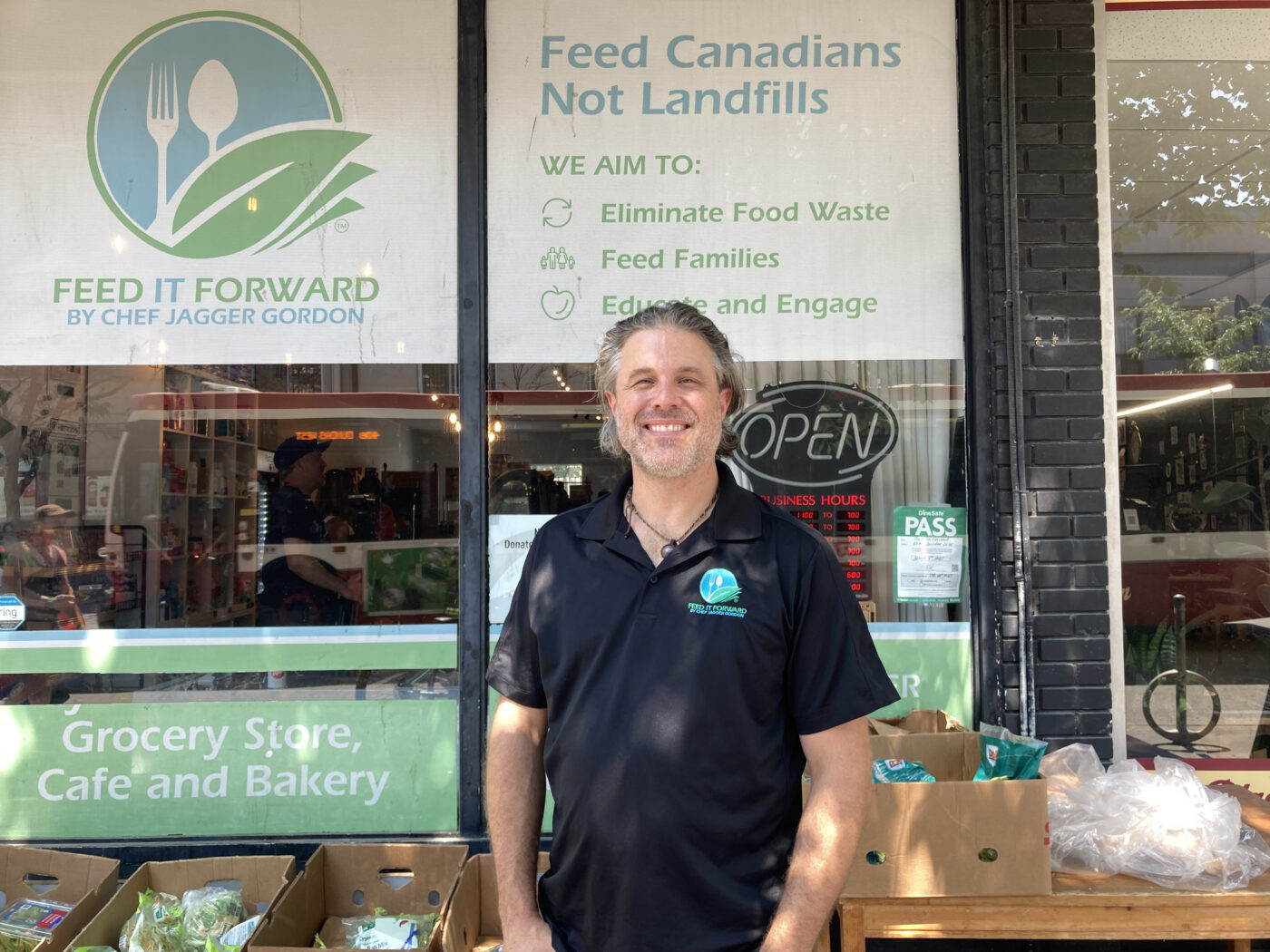
Carson Foster, CEO of Feed It Forward, stands in front of the pay-what-you-can grocery store at 2770 Dundas St. W.


AMANDA SERAPHINA JAMES RAJAKUMAR
Indian immigrant with a post-grad in journalism from Centennial College. Now living in Grange Park, meeting new people, and hearing different stories. Has four names, so it’s a pick-your-player situation.

MARY NEWMAN
British-Canadian journalist with a decade’s experience producing for the BBC and CBC. Hails from Robin Hood country so naturally hates wealth inequality and loves organized labour. Now resides in the dog paradise of Roncesvalles.
Aug. 22, 2025
How to divert food waste with a PWYC grocery store
- Network with local restaurants, grocery stores and farms to source surplus food.
- Find an easy-to-access location in the neighbourhood to set up a PWYC grocery store, talk to community centres to set up a stall or partner with Foodshare to run a community market.
- Invite residents to donate food, extra groceries and bags.
- Partner with caterers to provide surplus meals to locals in need.
- Find residents to volunteer with set up and running of the market on a weekly or bi-weekly basis.
Fruits and vegetables in grocery stores often look picture-perfect, but what happens to odd-shaped produce?
A lot of it goes to waste. That’s why one unique grocery store in West Bend is making sure produce of every shape and size ends up on a table instead of a landfill through its pay-what-you-can model.
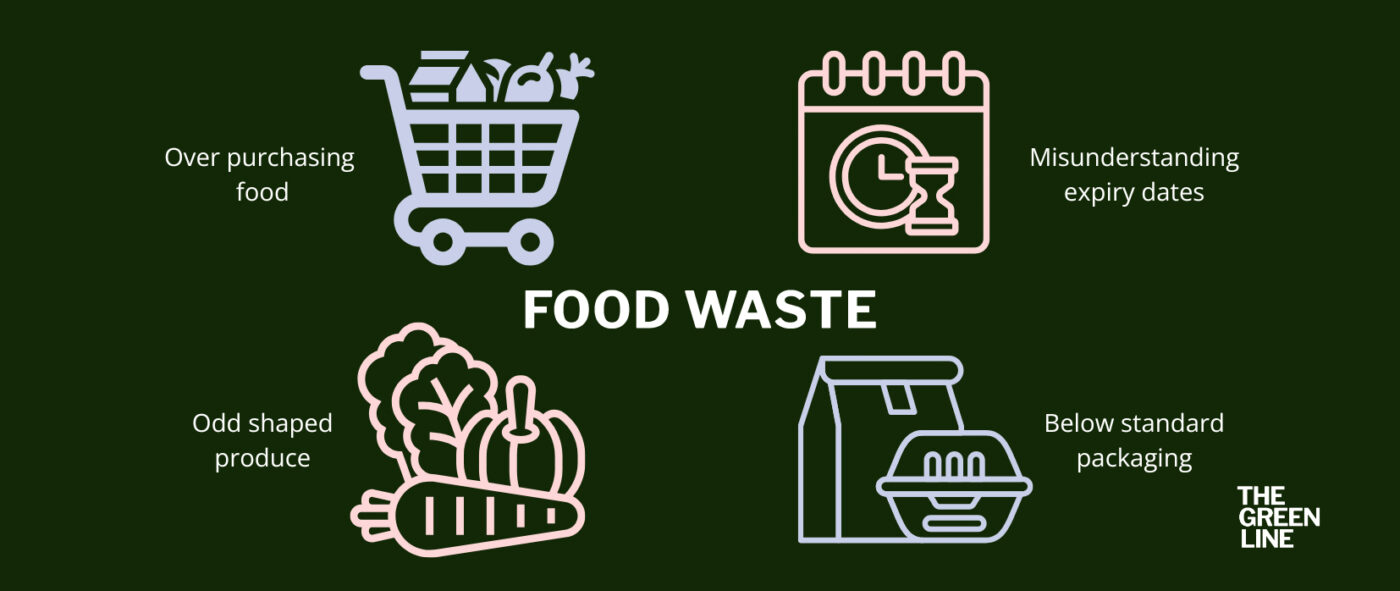
Icon graphic of the different forms of food waste.

According to City statistics, Toronto households produce over 99,000 tonnes of food waste every year and over 50 per cent of that is avoidable.
But where does food waste come from? For individuals, it's usually due to over-purchasing and misunderstanding expiry dates. For producers, it's because of odd-shaped produce and below-standard packaging.
While all this food is being wasted, some city residents can’t afford to adequately feed themselves. In December 2024, City Council declared food insecurity an emergency in Toronto. Nearly 25 per cent of Torontonians are food insecure — and the risks are higher for low-income, racialized and 2SLGBTQIA+ individuals.
So residents in West Bend are tackling two problems with one store — Feed It Forward’s pay-what-you-can grocery store uses excess and rejected produce to reduce food waste and address food insecurity.
Carson Foster, CEO of Feed It Forward, says diverting food waste can help solve the fundamental issue of hunger in the city. With the rising cost of living, a pay-what-you-can grocery store offers hope, dignity and an opportunity to feel cared for.
“It's unfortunate that the way our current grocery system and the way modern production [works], it's just a scalability thing. They create food en masse, without knowing whether it'll actually be utilized, and then it can't [be used] because of best-before dates. Meanwhile it's still good, they just can't sell it in traditional ways.”
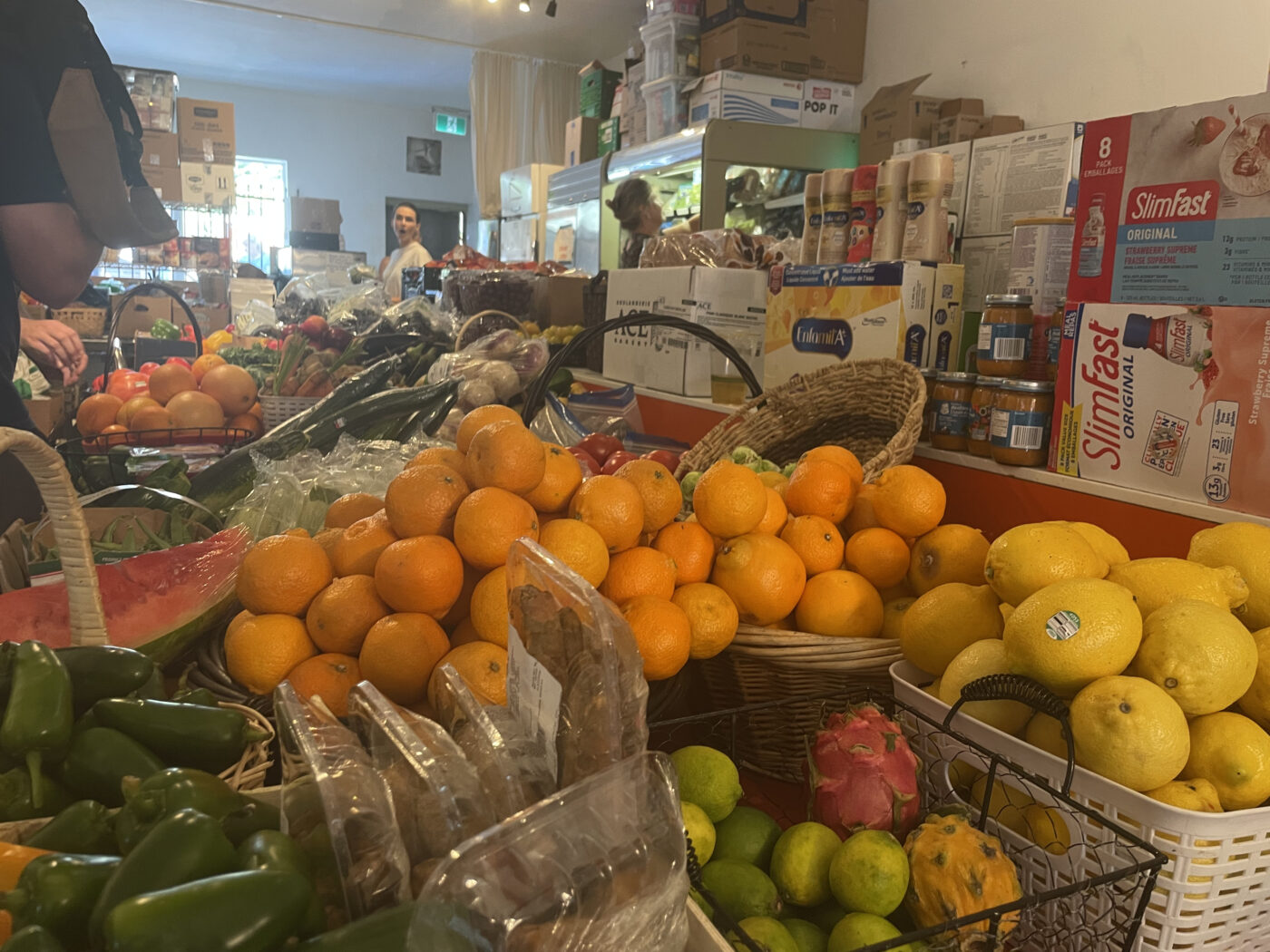
Fruits and vegetables stacked up inside Feed It Forward’s pay-what-you-can grocery store at 2770 Dundas St. W.

Feed It Forward is a non-profit organization that runs both the grocery store and a free food-sharing app. The store collects high-quality, excess produce from restaurants, farms and retailers to sell at affordable prices or give away for free to those in need.
Meanwhile, the app empowers locals to share their extras by uploading details on the type of food and pick-up location.
Zack B. the store manager at Feed It Forward says he has seen different people shop at the store, from those who want to be socially responsible and divert food waste away from landfills to those with no means of affording regular groceries.
"You would be surprised how many hugs I get alone, just from people being like 'oh man I never knew a place like this existed,' and you got people who are down to their last dollar."

Shane Rankin, a West Bend resident, stands inside Feed It Forward’s pay-what-you-can grocery store at 2770 Dundas St. W.

Shane Rankin, a West Bend resident, has been shopping at Feed It Forward for the past four years. He says groceries in the city are overpriced, especially healthy natural foods which aren’t processed — so having a grocery store like Feed It Forward not only keeps food out of landfills but also promotes healthy eating.
“There's a social perception as well about buying food that is almost like secondhand, even though it's not really secondhand food and we live in a world where we like our groceries to look perfect when we buy them. But if you've ever been in nature or worked on a farm or anything like that, you know that things don't grow perfectly."
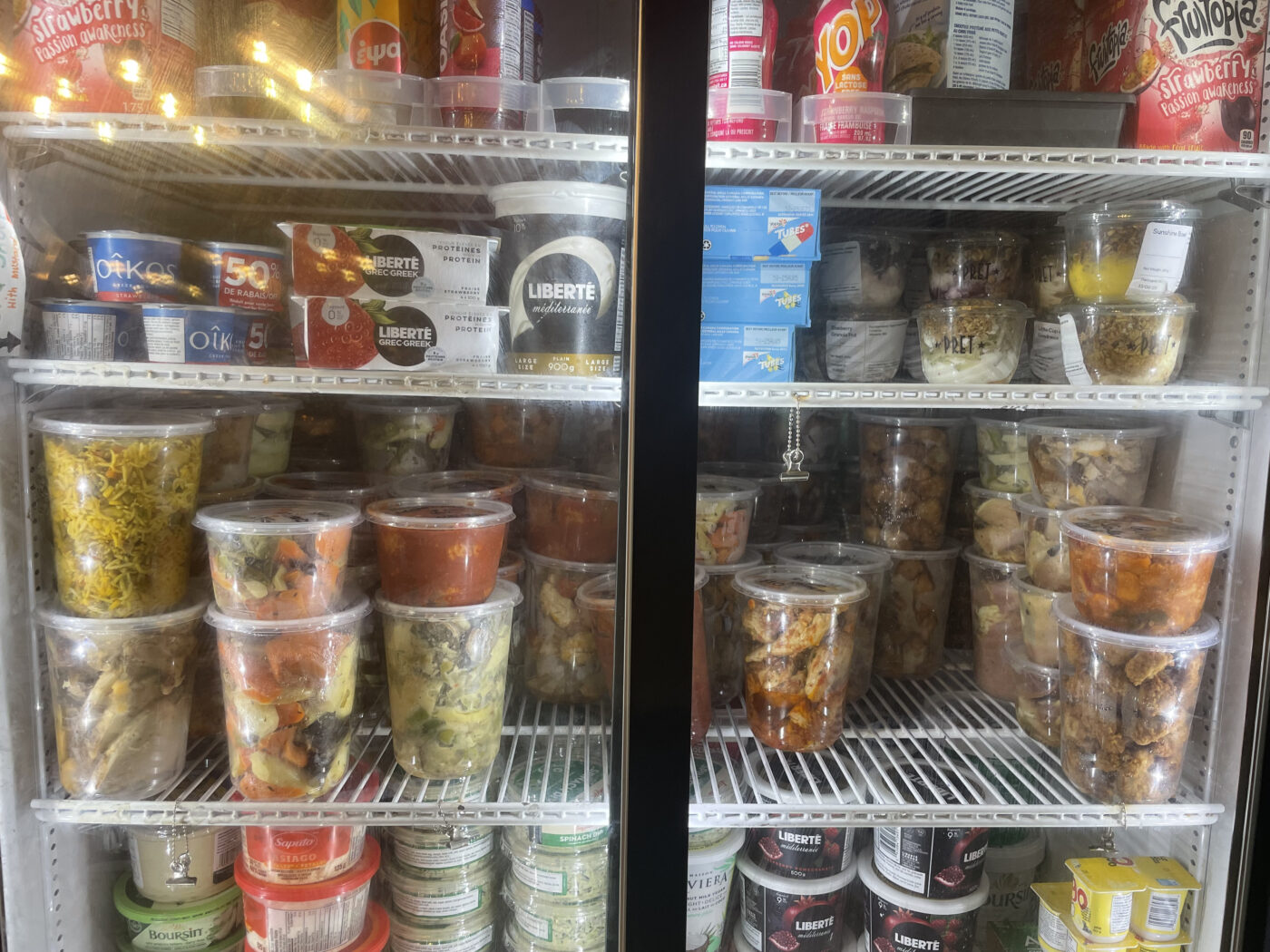
Prepped meals and yogurt refrigerated inside Feed It Forward’s pay-what-you-can grocery store near the intersection of Dundas Street West and Keele Street.

Ultimately Feed It Forward aims to build a socially responsible neighbourhood that diverts food from landfills and helps out a neighbour in need. The non-profit will be relaunching its app in December, making it more user-friendly and easy-to-access.
Fact-Check Yourself
Sources and
further reading
Don't take our word for it —
check our sources for yourself.
